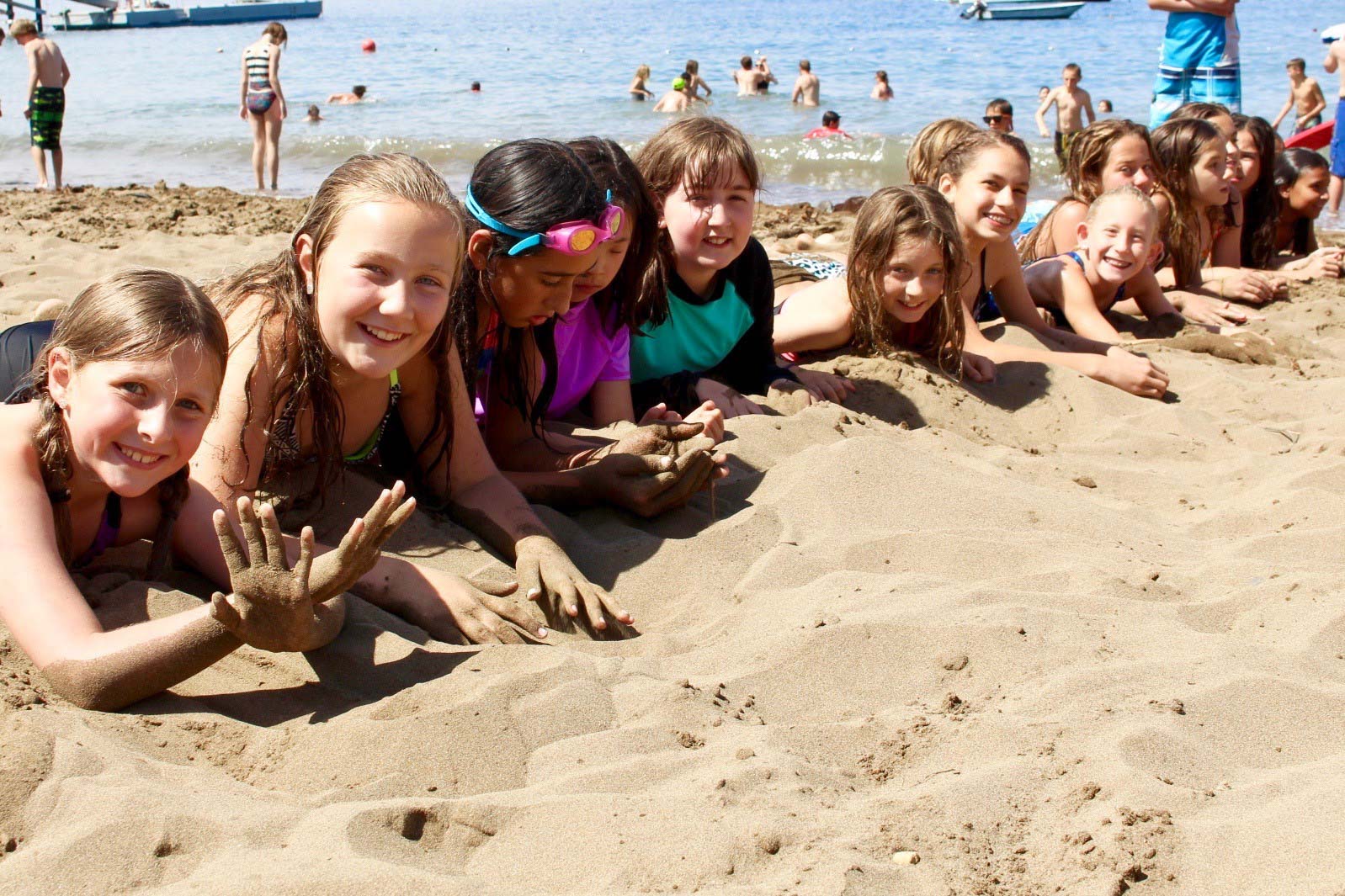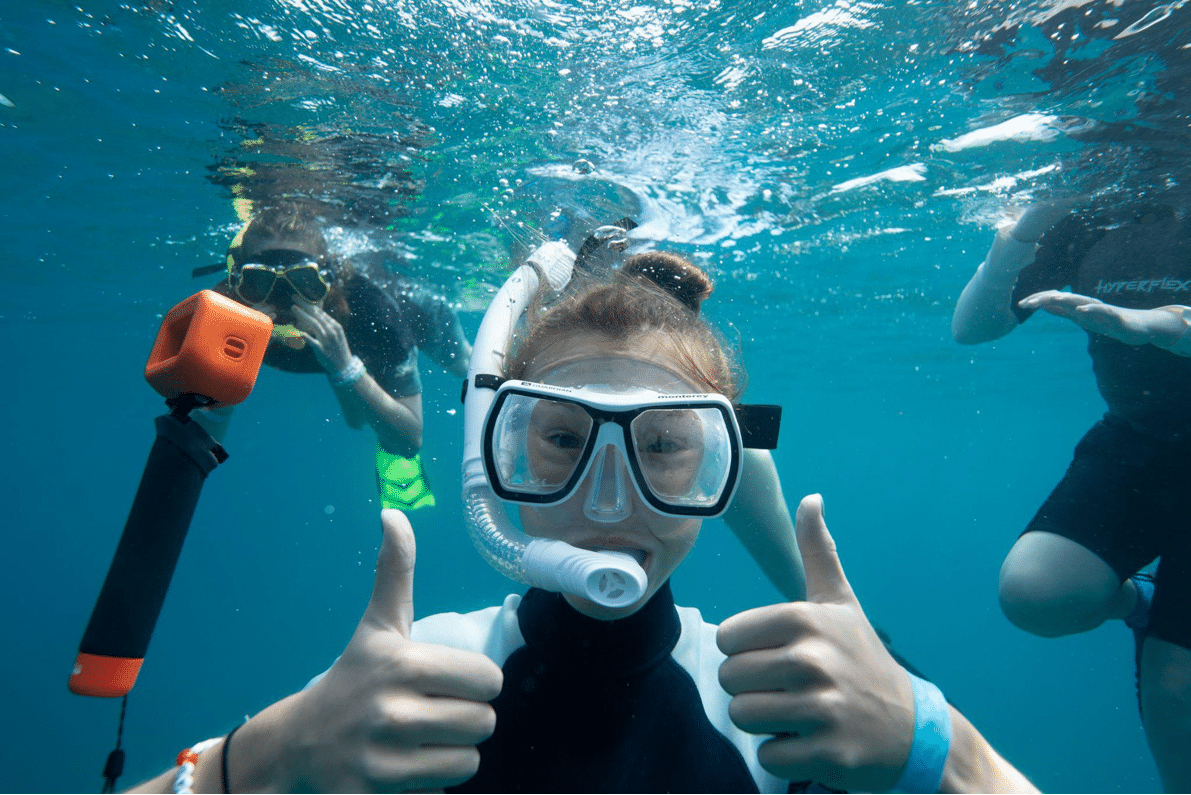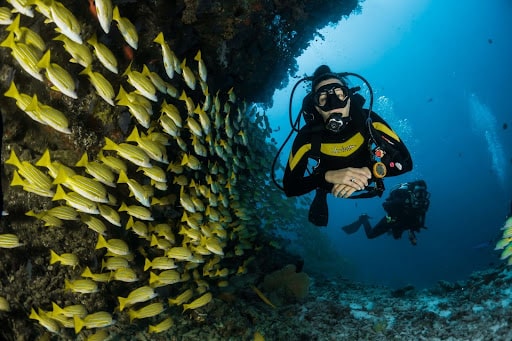
Going to the beach is a blast! There are sand castles, boogie boarding, ice cream, the warm sun on your skin, and the sound of children playing. But in addition to all that fun in the sun, the beach can be a dangerous place if you’re not paying attention.
Here we’ll give you four beach safety tips that you can discuss with your children to make sure everyone is having the most fun in the safest way possible.
Swim Near the Lifeguards
When you first arrive at the beach, look to see where the lifeguard towers are and if any lifeguards are on duty. If they are watching the ocean, tell your kids to swim near the lifeguard tower so they can easily be spotted—the old adage of if you can’t see them, they can’t see you.
If there are no lifeguards on duty, and you’re unsure of the water conditions and of everyone’s swimming abilities, it’s advisable to stay on the sand.

Look For the Beach Flags and Know What They Mean
Once you get to the beach you should notice a colored flag waving near the lifeguard tower, on the beach, or sometimes at the beach’s entrance. This flag indicates the ocean’s conditions and whether or not it’s safe to swim.
Around the flag should be a posted sign that tells you what the different flag colors mean (it can vary between countries or even within states). If you can’t find a sign, simply ask the lifeguard about the ocean’s conditions.
Here is a breakdown of the common colors and their meaning (generally):
- Red = high hazard
- Yellow = medium hazard
- Green = low hazard
- Blue = dangerous marine life

Be Aware of Rip Currents and How to Escape Them
Rip currents can appear in any large body of water, and while they won’t pull you under the water they can whisk you away from the shore. Spotting a rip current can be tricky, but there are some basic rules of thumb. Typically they form in the calmer areas between wave breaks. So if you see two clusters of white-capped waves with an open “plain” of water in the middle, that’s most likely where the rip current is. You can also watch where surfers enter the water. Experienced surfers will take advantage of the easy ride and use the rip currents to get to the surf zone.
When discussing rip currents with your child it’s important to remind them to stay calm if they find themselves in one. Keeping a calm and clear head can help them return to safety. To exit a rip current, one must swim parallel to the shore to get out of the current, and once they’re out then they can swim into shore. Here are some additional tips about rip current safety to share with your child.
Never Turn Your Back to the Ocean
The ocean is a fun, awe-inspiring place, but it’s also deeply unpredictable. You’ve probably seen videos of people turning away from the ocean for a picture or to chat and suddenly getting slammed into the sand by a big wave. So it’s important to remind kids to always have an eye toward the ocean, especially when exiting.
Another way to always watch the ocean is to swim with a buddy! Having a friend in the ocean with your child can help them feel more at ease, and can provide them with additional safety support.

Ocean Safety at Catalina Sea Camp
As a camp that sits within a private cove and is dedicated to marine biology, we take ocean safety very seriously! All of our instructors are trained as waterfront lifeguards, which includes CPR/AED for the professional rescuer, first aid, and emergency oxygen administration. Staff also utilize two-way radios for constant contact with the office and camp directors.
Additionally, the Catalina Sea Camp dive staff is composed of NAUI instructors and divemasters who undergo rigorous training. NAUI uses a ‘loved one concept’ that dictates, “an individual should not be qualified as an NAUI instructor unless those empowered to qualify the person would allow that person to teach their loved ones to dive.”
If your child loves the ocean, the beach, and learning about marine life then our marine biology summer camp is perfect for them! Off our private shores, we swim, snorkel, and scuba all while learning about the precious life our oceans hold. Get in touch with us, we’re here to help.



